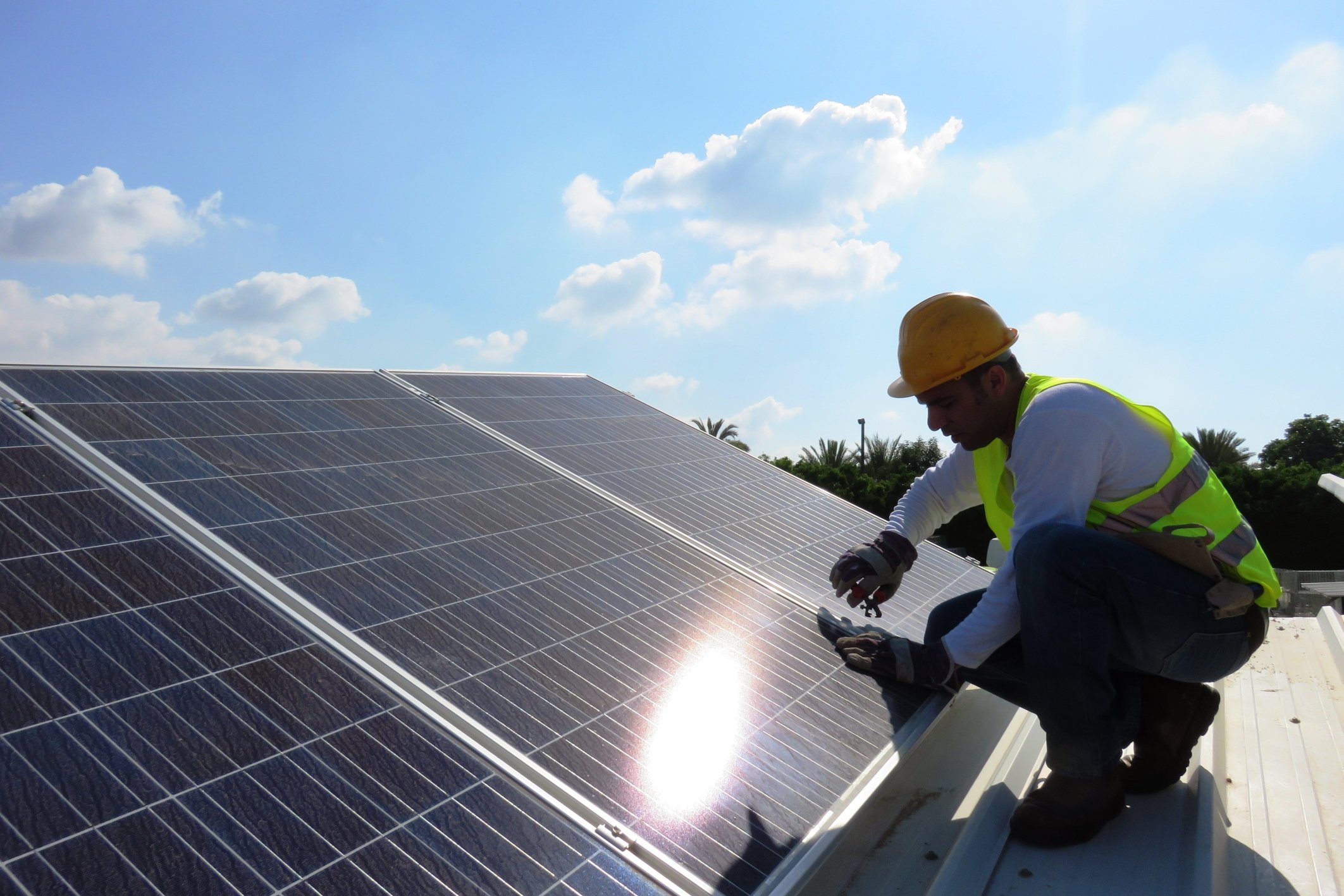The Middle East has some of the most abundant energy assets in the world, but it's not just oil that investors should be keeping their eyes on. Saudi Arabia and the United Arab Emirates, in particular, have extremely high solar insolation, which makes solar energy very attractive for powering their grids.
Slowly, countries are starting to realize that it's a lot cheaper to power their grids with solar energy than domestically produced oil, which could be sold overseas. That realization is creating a multibillion-dollar opportunity for solar developers and manufacturers.

Image source: Getty Images.
Saudi Arabia gets serious about solar energy
In 2017, Saudi Arabia dipped its toe in the renewable energy business with tenders for 300 MW of solar and 400 MW of wind projects. The prices bid by developers for solar were so low, in one case only 1.8 cents per kWh, that solar beats the cost of all natural gas and oil plants currently operating in the country.
2018 will mark a more serious investment in solar with 3.25 GW of tenders expected along with another 800 MW of tenders for wind energy. By 2023, Saudi Arabia plans to have 9.5 GW of renewable energy capacity and hopes to be exporting electricity from wind and solar to neighboring countries.
Given abundant land and solar insolation, the Middle East will be a perfect place to develop solar energy, replacing high-cost fossil fuel plants that are currently providing electricity. Economically, solar and wind are a win-win for countries like Saudi Arabia and the UAE.
The solar players to watch
Bidding has already been fierce for solar projects, and it looks like power purchase agreements below 3 cents per kWh are now the new normal, with 2 cents per kWh being outlier low bids. And developers and suppliers are lining up to win contracts.
We know Total (TOT +0.00%) was one of the bidders below 3 cents per kWh in the most recent Saudi Arabia auction. It's likely that SunPower (SPWR +0.00%) would be a supplier of P-Series solar panels and Oasis trackers for the system.
Canadian Solar (CSIQ +3.24%) also won a supply deal in Dubai and has been an aggressive bidder for solar panel supply contracts.
JinkoSolar (JKS +8.34%) is also building a 1.2 GW project in Abu Dhabi that carries a power purchase agreement price of 2.4 cents per kWh. It's another low-cost supplier that's been aggressive in new markets in the Middle East.
A promising new market opens up
Most countries with large solar markets have used subsidies or policy incentives to drive adoption. In the Middle East, we're seeing market forces drive adoption because the cost of solar has gotten so low that it's a no-brainer for these oil-producing countries. The advantage is that they get lower-cost electricity than from burning oil and natural gas, thereby freeing up more fossil fuels they can export, generating revenue for their countries. It's a win-win and, for the solar industry, this could be an important new market heading into 2018's tenders.








